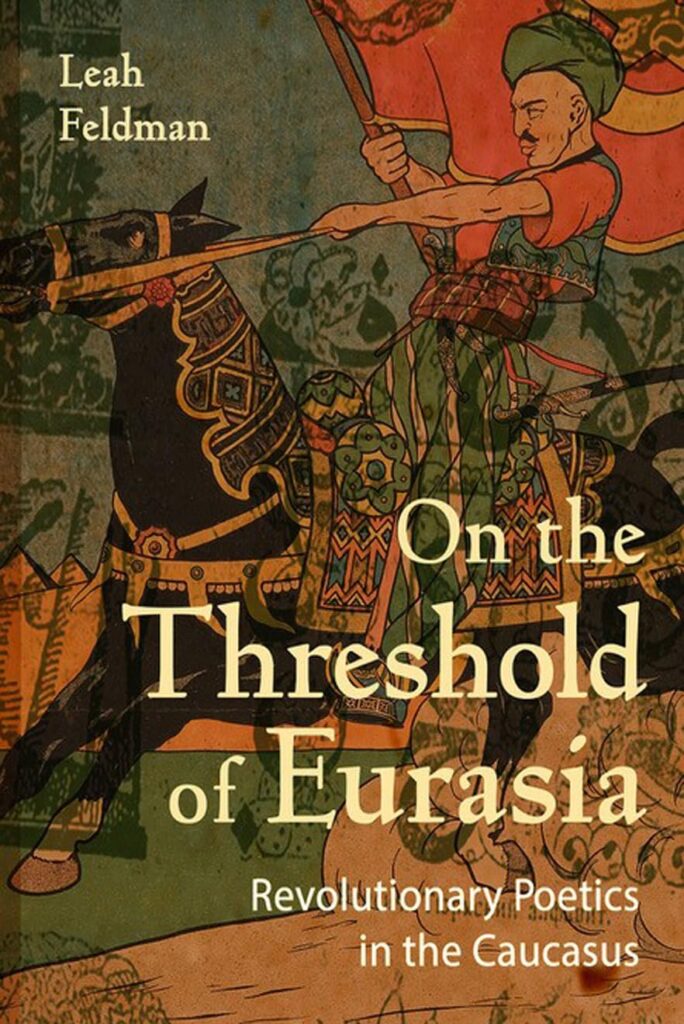On the Threshold of Eurasia explores the idea of the Russian and Soviet “East” as a political, aesthetic, and scientific system of ideas that emerged through a series of intertextual encounters produced by Russians and Turkic Muslims on the imperial periphery amidst the revolutionary transition from 1905 to 1929. Identifying the role of Russian and Soviet Orientalism in shaping the formation of a specifically Eurasian imaginary, I examine connections between avant-garde literary works; Orientalist historical, geographic and linguistic texts; and political essays written by Russian and Azeri Turkic Muslim writers and thinkers.
Tracing these engagements and interactions between Russia and the Caucasus, I offer an alternative vision of empire, modernity, and anti-imperialism from the vantage point not of the metropole but from the cosmopolitan centers at the edges of the Russian and later Soviet empires. In this way, On the Threshold of Eurasia illustrates the pivotal impact that the Caucasus (and the Soviet periphery more broadly) had—through the founding of an avant-garde poetics animated by Russian and Arabo-Persian precursors, Islamic metaphysics, and Marxist-Leninist theories of language —on the monumental aesthetic and political shifts of the early twentieth century.
Cornell University Press, 2018 (282 pages)
Winner of the Central Eurasian Studies Society Book Award in History and the Humanities, 2019

Praise for the book
“Leah Feldman’s On the Threshold of Eurasia: Revolutionary Poetics in the Caucasus offers an extraordinarily nuanced account of the complex interactions between the work of Russian and Turkic Muslim writers at the peripheries of the Ottoman or Persian, then Russian, then Soviet empires. In doing so, Feldman develops a theoretical model of the intricate dynamics of the relations between colonial, anticolonial, and postcolonial texts that takes the reader to new conceptual possibilities of imaginable forms and processes of cultural resistance in the relations between colonized and imperial, peripheral and dominant cultures, more textually subtle and more politically complex than those on which analyses of the literatures of the global South have often relied.
In showing us a whole series of “Russian and Turkic intertextual encounters, which expose the construction of literary modernism as central to Soviet empire building, through the transnational circulation of texts and ideas between Russia and the Caucasus,” Feldman’s analysis of Caucasian poetics enables a distinct, more dynamic way of thinking about the poetics of colonized literatures and their postcolonial successors.”
—Robert J.C. Young, NYU
“On the Threshold of Eurasia joins with some of the best new work being done on the culture, history, and social geography of the Caucasus. In this beautiful work, Feldman offers a portrait of a robust world area that has long been lost to other master narratives of history, place, and culture.”
—Bruce Grant, NYU
“On the Threshold of Eurasia presents new ways of thinking about Russian literature, Russian modernism and the avant-garde, and the long revolutionary period, and expands our view of what the Caucasus region is and was.”
—Katya Hokanson, University of Oregon